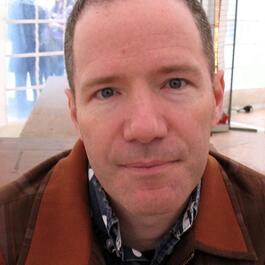
fiction/non/fiction
Hosted by Whitney Terrell and V.V. Ganeshananthan, fiction/non/fiction interprets current events through the lens of literature, and features conversations with writers of all stripes, from novelists and poets to journalists and essayists.
Show episodes
Pulitzer Prize finalist Sven Beckert joins co-hosts Whitney Terrell and V.V. Ganeshananthan to talk about his new book, Capitalism: A Global History. Beckert describes capitalism as an ongoing process comparable in significance to geological forces; he examines the way it shapes our interactions with the world and note
Journalist Jacob Silverman joins co-hosts Whitney Terrell and V.V. Ganeshananthan to talk about his new book, Gilded Rage: Elon Musk and the Radicalization of Silicon Valley. He discusses the rightward shift in ideology among leading tech giants and their companies, partially attributing the change to an interest in do
Journalist Jacob Silverman joins co-hosts Whitney Terrell and V.V. Ganeshananthan to talk about his new book, Gilded Rage: Elon Musk and the Radicalization of Silicon Valley. He discusses the rightward shift in ideology among leading tech giants and their companies, partially attributing the change to an interest in do

S9 Ep. 7: Kathryn Nuernberger on Mutualism, Climate, and Finding Family at the End of the World
Poet and essayist Kathryn Nuernberger joins co-hosts Whitney Terrell and V.V. Ganeshananthan to talk about her new collection of lyric essays, Held: Essays in Belonging, which is about symbiotic mutualisms, and grief and joy in an era of worsening climate change. She discusses COP30, the United Nations climate gatherin

Kathryn Nuernberger on Mutualism, Climate, and Finding Family at the End of the World
Poet and essayist Kathryn Nuernberger joins co-hosts Whitney Terrell and V.V. Ganeshananthan to talk about her new collection of lyric essays, Held: Essays in Belonging, which is about symbiotic mutualisms, and grief and joy in an era of worsening climate change. She discusses COP30, the United Nations climate gatherin

S9 Ep. 6: Ottilie Mulzet on Translating Hungarian Nobel Prize Winner László Krasznahorkai
Translator Ottilie Mulzet joins co-hosts Whitney Terrell and V.V. Ganeshananthan to talk about her award-winning translations of Nobel Prize winner László Krasznahorkai’s work. Mulzet, who was born in Canada and now lives in the Czech Republic, discusses how she learned Hungarian and began working with Krasznahorkai. S




